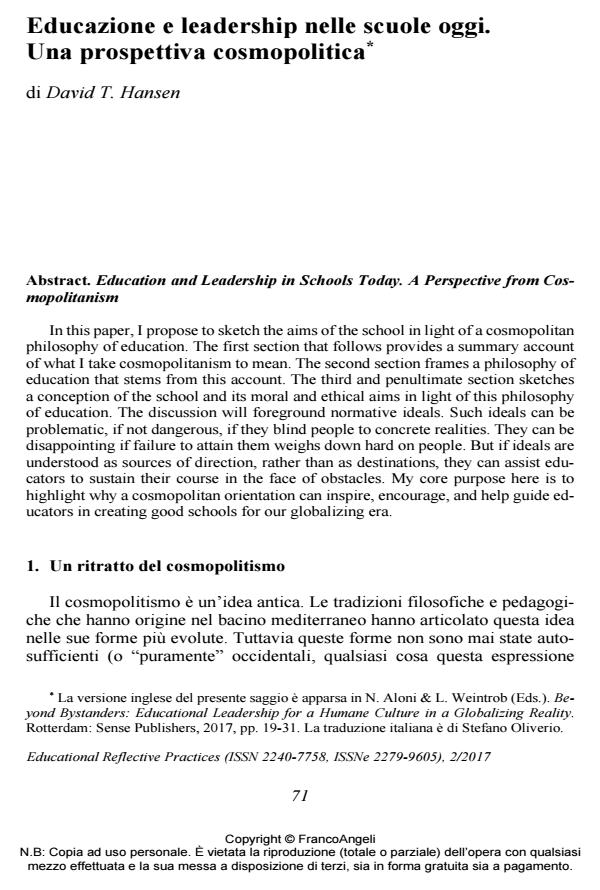Education and Leadership in Schools Today. A Perspective from Cosmopolitanism
Journal title EDUCATIONAL REFLECTIVE PRACTICES
Author/s David T. Hansen
Publishing Year 2018 Issue 2017/2
Language Italian Pages 15 P. 71-85 File size 233 KB
DOI 10.3280/ERP2017-002006
DOI is like a bar code for intellectual property: to have more infomation
click here
Below, you can see the article first page
If you want to buy this article in PDF format, you can do it, following the instructions to buy download credits

FrancoAngeli is member of Publishers International Linking Association, Inc (PILA), a not-for-profit association which run the CrossRef service enabling links to and from online scholarly content.
In this paper, I propose to sketch the aims of the school in light of a cosmopoli-tan philosophy of education. The first section that follows provides a summary account of what I take cosmopolitanism to mean. The second section frames a philosophy of education that stems from this account. The third and penultimate section sketches a conception of the school and its moral and ethical aims in light of this philosophy of education. The discussion will foreground normative ideals. Such ideals can be problematic, if not dangerous, if they blind people to concrete realities. They can be disappointing if failure to attain them weighs down hard on people. But if ideals are understood as sources of direction, rather than as destinations, they can assist educators to sustain their course in the face of obstacles. My core purpose here is to highlight why a cosmopolitan orientation can inspire, encourage, and help guide educators in creating good schools for our globalizing era.
David T. Hansen, Educazione e leadership nelle scuole oggi. Una prospettiva cosmopolitica in "EDUCATIONAL REFLECTIVE PRACTICES" 2/2017, pp 71-85, DOI: 10.3280/ERP2017-002006